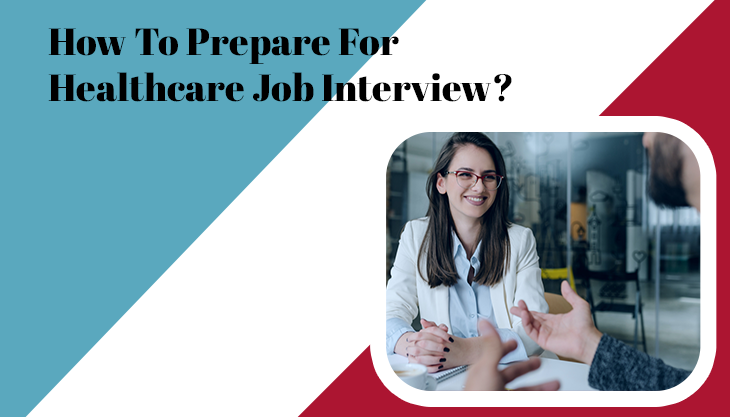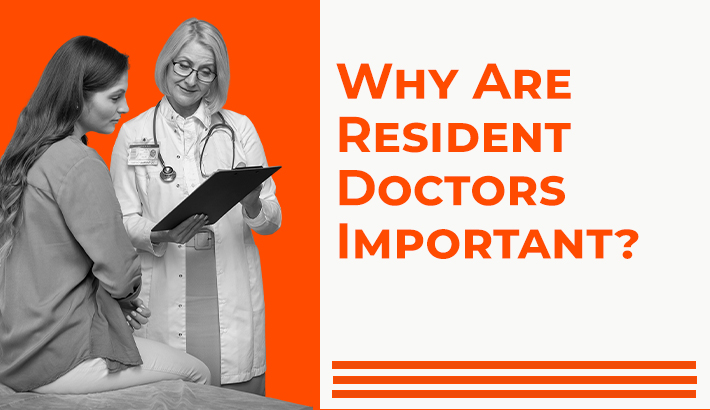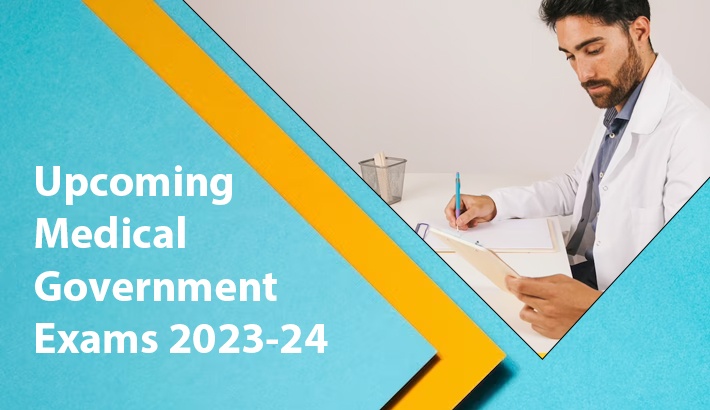Preparing for questions commonly asked during a job interview can be the difference between landing or losing a job offer. There's no need to memorize every possible question and find the perfect answer for all of them. But educating yourself about the healthcare job platform and the common questions you're likely to be asked is still essential.
The more prepared you are, the less nervous you'll be, so even if you're asked something unexpected, you'll be able to think on your feet and answer. You've earned your certification and are ready to land your first allied health job. Or perhaps you're already in the field but you’re looking to move on or move up.
For this, you should prepare for your healthcare job interview.
Tips for Preparing for Healthcare Job Interviews
1. Research about the company and interviewer
One of the great things about entering the healthcare industry is that there's a diverse range of employers to choose from. Each employer will have a distinct work environment and culture, from hospitals and pharmacies to assisted living facilities. This is crucial while planning how to prepare for your healthcare job interview.
Do as much research as possible about the company and the person interviewing you on sites such as LinkedIn. The interviewer will be impressed if you can bring up a piece of news or company history you read on their website and show them that you are genuinely interested in the business.
2. Build your resume
Look at the job requirements and tweak your resume based on them. This will help increase your chances of rising to the top of the resume stack. Use words in their job description to show that you are the candidate they're looking for. And be sure to check out our resume tips for allied health professionals.
3. Anticipate the resume questions
Your resume is your first impression of your potential employer. If it leaves any question marks, be prepared to answer them. Employers will respect your honesty and the fact that you march to the beat of your drum. Ensure your resume is planned according to the healthcare jobs in India.
4. Rehearse some answers
Prepare some answers for questions you think might come up in the interview. This will vary by position.
5. Prepare some questions of your own
Interviews go two ways. They are interviewing you to see if you're a good fit for the position, and you are interviewing them to see if it's a good fit for you. It's not much different from dating.
At the end of the interview, you'll likely be asked, "What questions do you have for me?" Have some questions prepared to help you decide whether or not the position is proper for you. Be an active interviewer, not just an interviewee. After all, nobody wants to date someone who only talks about themselves.
6. Plan your outfit
Plan what you're wearing ahead of time to eliminate some stress on interview day. You've already researched the work environment, so you know what to expect. And in many allied health professions, it's likely scrubs.
Business attire is generally safe, but formal is always better. Consider a suit or business-appropriate dress that's not too form-fitting. Keep jewelry and makeup minimal to avoid distraction. And make sure to pull out the iron if anything is wrinkled.
7. Pack your bag
Prepare everything you need to bring ahead of time so that, like your outfit, it's one less thing to worry about come interview day. Here are some things to consider packing:
1. Extra copies of your resume
2. A list of references
3. Notepad and pen to take notes
4. A stain-removing pen (just in case!)
5. Breath mints (make sure you've finished freshening your breath before the interview, so the mint in your mouth is not a distraction)
6. A water bottle
A good night's rest is essential. According to WebMD, when you don't get enough sleep, you won't think as; clearly, your emotions might be everywhere, and work performance can suffer. Strive for eight solid hours and eat an energizing breakfast to ensure your body and mind are at their best.
8. Plan your commute
Look up directions and plan to arrive 20-30 minutes early. A good rule of thumb is to go into the interview 10 minutes early to show your potential employer that you're punctual. But that extra 10–20 minutes will be a nice buffer for unexpected traffic delays, parking, etc. Plus, arriving early will leave a few additional minutes.
9. Breathe
Look, interviews are stressful. But keep in mind that it's felt on both sides. Remember, you are interviewing them as much as they are interviewing you — you both looking for a good fit. Give yourself a couple of minutes to take a few deep, calming breaths to relax your nervous system. Try this 5-minute guided meditation in your car so you'll be in a calmer state walking into the interview.
The IndianRDA medical Job portal is an organisation that aims to bring together MBBS and post-graduate doctors in India. This portal brings all medicos together in one group and plans some beneficial healthcare and other guidance for India's citizens.
Sample Job Interview Questions
As part of the healthcare job interview preparation tips, here is a list of common interview questions and sample answers to get you started. Prepare your answers to these questions in advance. It may feel silly at the time, but it will feel less problematic when you're rocking it in your interview.
1. Tell me about yourself
Give a broad overview of your work or educational history and throw in something outside of the job you're passionate about to let them know you're attractive, not just qualified.
Example Answer: I have always wanted to help people, so I have spent the last five summers as a lifeguard. After completing my training at ABC Health Career Institute, where I recently graduated with honours, I successfully obtained my certification. Now, I'm excited to get started in this new career.
2. What made you interested in working here?
Be honest and show that you did your research.
Example Answer: I've heard great things from my friends here, and I am impressed with your technological advancements in the last few years. It seems to be an innovative environment with a great culture.
3. What's your biggest strength?
Choose a strength that aligns with what they're looking for in an ideal candidate.
Example Answer: I'm good at relating to people and making them feel comfortable. I think it's essential to earn a patient's trust, which I feel I do well.
4. What's your biggest weakness?
Be cautious but honest, and let them know how you try to improve. Don't answer this question with a cop-out, such as "I'm a bit of a perfectionist."
Example Answer: I am uncomfortable with confrontation. Sometimes I have not done what I felt was best to keep the peace. This can be a problem when patients need to hear something they don't like, and I've learned that sometimes what they don't want to hear is actually what's best for them to hear.
5. Why did you leave your last position?
Now's not the time to put your previous employer on blast. Stay as positive as possible, and shift the focus to the new opportunity.
Example Answer: They didn't have the innovative environment I'm looking for, which is why I am so excited about this opportunity.
6. How do you stay up-to-date with healthcare advancements?
If you have an NHA certification, you can talk about your continuing education! One of the benefits to maintaining certification is that it helps make you more marketable as a job candidate. NHA certification holders have access to our library of continuing education content included in keeping their certification up-to-date.
Example Answer: I take continuing education courses from NHA every year, and I'm in the habit of reading industry articles and studies. I don't believe education ever truly ends, especially in this field.
7. What are your career goals?
Don't share your 30-year plan. Focus on the near future and incorporate the employer into those goals.
Example Answer: My objective is to get a job as a medical assistant. Ideally, I'd like to be at a technologically advanced company like this one to continue learning and growing in an innovative environment.
Remember, many factors come into play when applying for a job, but with a plan and some practice, you can feel much more confident walking into that interview.
Prepare well for the interview and use these tips mentioned above. All the best for your interview.





Post Comments